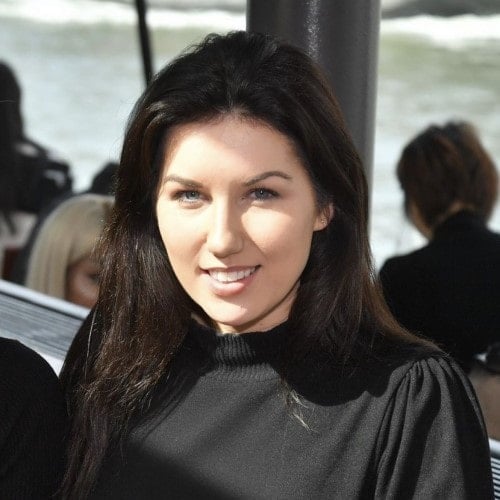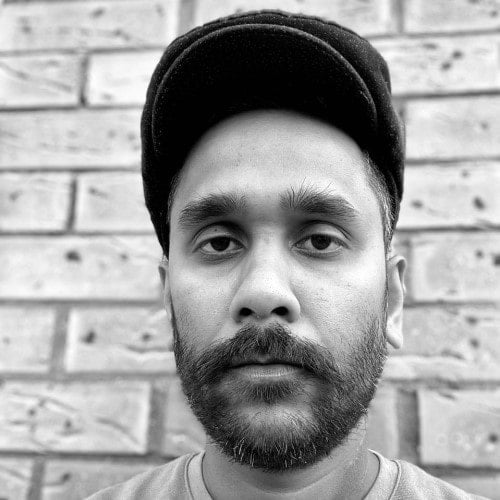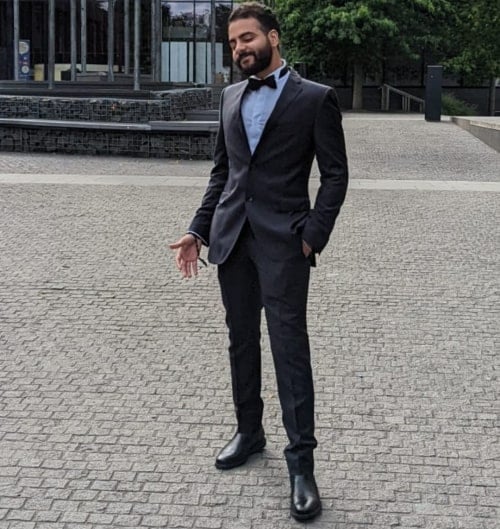SPORTS BROADCASTER COURSE
6 WEEKS
MONDAYS & WEDNESDAYS
5:30 PM BST
8 OCT 2025 - 19 NOV 2025
DURATION:
6 WEEKS
MONDAYS & WEDNESDAYS
5:30 PM BST
Write, report, commentate — for any sport, on any screen. Learn the skills, find your style, and get ready for the spotlight as a sports broadcaster.
Anne-Marie Batson, a renowned sports broadcaster & commentator, is going to show you how to master the mic, think on your feet, and build a standout portfolio that opens real doors in sports media.
WHO THIS COURSE IS FOR
-
YOU ARE A BEGINNER SPORTS BROADCASTER OR JOURNALIST
Still figuring out where you fit on the mic? This sports broadcasting course breaks down every role, sharpens your on-air delivery, and gives you the tools to sound like you’ve been doing it for years — even if you're just getting started.
-
YOU ARE A RADIO HOST TRANSITIONING TO TV OR SOCIAL MEDIA
Got the voice? Now get the visuals. We’ll bridge the gap between mic and camera — helping radio pros level up for TV and social. Learn the art of visual storytelling, sharpen your on-screen presence, and make your broadcast skills camera-ready.
-
YOU ARE A CONTENT CREATOR PRODUCING PODCASTS OR STREAMS
Stop talking into the void. If you're a podcaster or streamer stuck with low engagement and scattered content, this course is your upgrade. Learn how to craft compelling narratives, sharpen delivery, and grow a brand that actually gets noticed.
Build a voice that’s unmistakably yours.
There is no single blueprint to becoming a sports broadcaster — but what you can do is learn the skills, grow your experience and confidence as you navigate your way through the industry. And that’s what this course is all about.
Learn by doing — this is your playbook.
The curriculum is not for the faint of heart, but we’re going to get you to experience what it’s like to be a sports broadcaster — with fantastic people to join us to talk about their experiences — and give you an idea of how you want to pursue your dream.
- Broadcasts across TV, radio, and digital with a dynamic voice and a passion for storytelling.
- Brings tennis to life as a commentator for the WTA, blending insight with genuine love for the game.
- Leads from the sidelines as a trusted emcee for Davis Cup and Billie Jean King Cup tournaments.
- Reports pitch-side for Premier League Productions, delivering player interviews and fresh match-day insights.
- Co-founded the Tennis Black List, spotlighting Black excellence in tennis and driving conversations around representation.

MODULE 1
FOUNDATIONS OF SPORTS BROADCASTING
The way sport is being consumed is changing rapidly. Discover what role in this field is the best fit for your natural talents and interests.
- Industry overview
- Sports broadcaster types
- Instructor’s personal journey
- Finding your strengths and preferences
- Successful sports broadcaster qualities
- Discussion: Identify your natural strengths and broadcasting style preferences and which roles might serve as stepping stones to your ultimate goal
Research is the heart of sports broadcasting. Learn to organise research for quick reference and identify compelling storylines from stats and background information.
- Game statistics & player backgrounds
- Online resources and databases
- Preparation templates
- Writing narratives and storylines
- Research hierarchy
- Demo: Researching and preparing from a reporter perspective for a Premier League game, using provided resources to develop storylines and talking points
Assignment #1: Research Portfolio
Develop a research portfolio for an upcoming sports match/game of your choice to demonstrate your ability to carry out research and identify compelling storylines.
While your voice is your main storytelling tool, writing is also important. Delve into conversational copy that sounds natural when read aloud and develop a distinctive writing voice while maintaining standards.
- Writing for eyes vs. ears
- Creating impactful statements
- Building compelling narratives
- Creating memorable phrases
- Writing to time & clear transitions
- Standard practice for broadcast scripts
- Workshop: Given an article - how to transition from newspaper to radio
Who you know matters. Lesson 4 will teach you to develop collaboration skills with production teams and talent, cultivate professional conduct that builds positive industry relationships, and adapt to different broadcasting environments.
- Relationship building
- Accuracy & attention to detail
- Time management: Pre-broadcast prep timelines
- Professional etiquette
- Adaptability
- Demo: Self-evaluation–techniques for reviewing and improving performance
MODULE 2
ADVANCED PERFORMANCE SKILLS
Gain the skills you need to become a confident and engaging reporter, presenter, or commentator who connects with radio and television broadcasting audiences.
- Public speaking techniques
- Workshop: Vocal warm-ups
- Developing a broadcasting style
- Body language & on-camera charisma
- Technical skills
- Workshop: Improvising and thinking on your feet and problem-solving
Assignment #2: Recorded Broadcast Segment
Using either assignment #1 as a starting point or a new topic/sport/match, record an audio segment with your phone or computer. Must include an introduction, top storyline, relevant research, a half-time update, and an ending.
Commentating is all about conveying the on-field emotion. Learn to bring sports to life through vivid descriptions, insights, and balanced commentary while capturing the drama and excitement of the match.
- Describing action with language and imagery
- Calling out key plays and moments
- Analysis & insights: Game strategies & player performance
- Balancing excitement with objectivity
- Guest speaker: Adrian Clarke, English former professional footballer
How do you draw out the most valuable information from an athlete, coach, or other sports figure? Gain the skills to deliver compelling interviews and courtside/touchline reports, adapting to changing situations while maintaining professionalism under pressure.
- Conducting effective interviews
- Preparing and asking relevant questions
- Gathering and reporting timely updates
- Adapting to changing circumstances
- Workshop: Role-play mock interviews and sideline reporting scenarios
- Guest speaker: Lynsey Hooper (Sky Sports) or Jordan Jarrett-Bryan (Channel Four)
Discover what it takes to become a skilled studio host. Learn to lead conversations, keep segments on track, and make guests feel comfortable and viewers engaged with what is to come next.
- Setting the tone and agenda
- Introducing guests and segments
- Using segues and transitions
- Teasing upcoming segments & promoting sponsors
- Guest speaker: Reshmin Chowdhury, TnT Sports, UEFA and FIFA draws, ITV Sport, BBC Sport, on balancing different personalities and opinions on air
MODULE 3
PROFESSIONAL INTEGRATION
EXPANDING YOUR BROADCASTING TOOLKIT
Explore how to build your broadcasting identity and create materials showcasing your talents while learning how to market yourself effectively across social media.
- Personal brand & public image
- Guest speaker: Garth Brameld, Decibel, on developing a personal branding strategy
- Portfolio & showreel
- Case study: Effective showreels and portfolios of Alex Scott, footballer to BBC Sport Presenter
- Pitching yourself & using social media
- Setting realistic goals and timelines
Assignment #3: Elevator Pitch
Create a 30-second elevator pitch for your broadcasting persona (audio or video), to aid you in building your Broadcasting Brand.
In this lesson, you will gain the skills for creating engaging sports content across TV, radio, and social media while learning how to adapt your style for each platform and make short-form videos for sharing.
- Creating content: TV, radio, online
- Utilising social media
- Workshop: Create a short highlights video for social media using AI tools
- Guest speaker: Alison Bender, Astro, Sky Sports News
Discover the versatility of specialised knowledge needed to broadcast multiple sports and understand their audiences while maintaining broadcasting standards.
- Adapting broadcasting techniques
- Guest speaker: Michael McCann, UWCL & cricket commentator, on understanding audience expectations, demographics, and knowledge levels across various sports
- Analysing broadcasters from a range of sports
- Toolkit for covering unfamiliar sports
Assignment #4: Comparative Analysis Segment
Compare yourself to 2 established sports broadcasters in your field and create a clear statement that differentiates you (audio or video, 1-2 minutes).
Radio, TV, live streaming… what’s next? Explore tools reshaping sports media and learn how streaming, virtual reality, and digital platforms are creating new opportunities to connect with fans.
- Emerging technologies
- Streaming & digital platforms
- New ways to engage viewers and listeners
- Case study: Virtual reality sports broadcasting (example of potential applications)
Create a practical sports broadcasting portfolio demonstrating your skills in their chosen broadcasting field.
- Instructor-selected presentations
- Feedback
What our students say

MARKETING DIRECTOR
"It was such a great experience, well worth the course fee which I invested personally - I've learnt so much and feel much more confident in my role.."

"The course at ELVTR was a great investment in my career. The materials are top-notch, and the instructors provided excellent support."

"The knowledge. The teacher is very experienced. He is able to answer our questions in depth, and takes the time to do so."

"The course was very helpful in helping me expand my design toolkits by gaining a wealth of new knowledge and inside expertise to stay at the forefront in an age of rapidly developing technological and software advancements."


